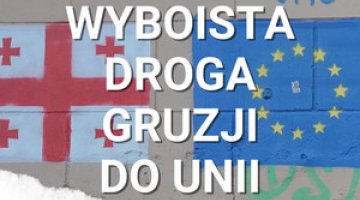An informal summit of the Eastern Partnership
On 24 May an informal summit of foreign ministers from the Eastern Partnership (EaP) took place in Sopot. The initiators of the meeting were Spain and Poland; by this action, the latter is aiming to activate this EU initiative. The meeting did not bring about any concrete results, and its aim was principally to maintain political dialogue within the framework of the EaP.
Representatives of the 27 member states and the 6 partner states participated in the meeting, although 16 of the union countries’ delegations were represented by officials of lower than ministerial ranking; also among the partner states, Armenia and Azerbaijan sent their deputy foreign ministers. The main subjects of the talks included extending the EaP’s financial package, simplifying the Union’s visa regime for the partner states, and presenting plans to be realised within the framework of the EaP. According to the EU’s enlargement commissioner Stefan Fuele, the first projects are to be carried out in the second half of this year, although the implementation of most of them will start in 2011. In the immediate future, the EU will present a specific plan of action regarding the liberalisation of the visa regime with Ukraine; begin a dialogue on visas with Moldova leading to drawing up conditions for lifting the visa requirement; sign a readmission agreement with Georgia; and begin negotiations on association agreements with the Caucasian states.
In addition, the Polish foreign minister Radoslaw Sikorski announced an agreement to appoint a Group of Friends of the EaP, which is to include Norway, Canada, the USA, Japan and other countries which could jointly finance projects; as well as Russia (a new move), as a country which could participate in the programme’s projects.
At its current stage of realisation, the EaP is dominated by the bureaucratic process of negotiating association agreements and deep free-trade zones (these already exist with Ukraine and Moldova, and negotiations with the Caucasian states are to begin). However, no concrete projects have been implemented for support for the Eastern European countries, for which two questions are currently of key importance; the liberalisation of visa regimes, and an increase in EU financial support. <rafas>





